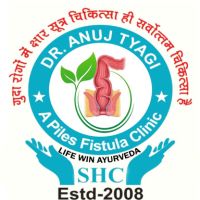Non Surgical Piles Treatment Methods Relief Without Surgery
Non-Surgical Piles Treatment Methods: Relief Without Surgery
Discover effective non-surgical piles treatment methods to alleviate discomfort and promote healing. Explore various options for managing hemorrhoids without undergoing surgery.
Hemorrhoids, commonly known as piles, affect millions of people worldwide, causing discomfort and disruption to daily life. While surgical interventions exist, non-surgical piles treatment methods offer relief without the need for invasive procedures.
In this comprehensive guide, we delve into various strategies and techniques to manage hemorrhoids effectively, promoting healing and enhancing quality of life.Hemorrhoids Treatment in Ghaziabad
Introduction
Dealing with hemorrhoids can be a challenging experience, impacting both physical comfort and emotional well-being. However, advancements in medical science have led to the development of non-surgical piles treatment methods, offering hope and relief to those affected.
From lifestyle adjustments to innovative therapies, there are numerous avenues to explore in the quest for comfort and healing.
Understanding Hemorrhoids
Hemorrhoids, or piles, are swollen veins in the lower rectum and anus, resulting from increased pressure in the pelvic and rectal area. This pressure can be due to various factors, including straining during bowel movements, chronic constipation, pregnancy, or sitting for extended periods. Hemorrhoids can be internal, occurring inside the rectum, or external, forming under the skin around the anus.
Symptoms of Hemorrhoids
- Hemorrhoids often manifest with a range of symptoms, including:
- Rectal bleeding during bowel movements.
- Itching or irritation in the anal region.
- Pain or discomfort, especially during sitting or bowel movements.
- Swelling or a lump near the anus.
Diagnosis and Evaluation
Before initiating treatment, it's crucial to undergo a thorough evaluation by a healthcare professional. Diagnosis typically involves a physical examination of the rectal area and may include additional tests, such as a digital rectal exam or anoscopy, to assess the extent and severity of the hemorrhoids.
Non-Surgical Treatment Options
1. Dietary Modifications
Making dietary changes can significantly impact hemorrhoid symptoms. Increasing fiber intake through fruits, vegetables, and whole grains can soften stool and facilitate easier bowel movements, reducing strain on the rectal area.
2. Topical Treatments
Over-the-counter creams, ointments, and suppositories containing ingredients like hydrocortisone or witch hazel can provide relief from itching, inflammation, and discomfort associated with hemorrhoids. fissure treatment in Ghaziabad
3. Sitz Baths
Taking warm sitz baths several times a day can help alleviate symptoms by improving blood flow to the anal area and reducing swelling. Adding Epsom salts or baking soda to the bathwater may enhance the soothing effect.
4. Lifestyle Modifications
Simple lifestyle adjustments, such as avoiding prolonged sitting or standing, staying hydrated, and engaging in regular physical activity, can promote bowel regularity and reduce the risk of hemorrhoid flare-ups.
5. Rubber Band Ligation
In this minimally invasive procedure, a small rubber band is placed at the base of the hemorrhoid, cutting off its blood supply. Over time, the hemorrhoid shrinks and falls off, providing long-term relief.
6. Infrared Coagulation (IRC)
IRC involves the use of infrared light to coagulate the blood vessels supplying the hemorrhoid, causing it to shrink and recede. This outpatient procedure is relatively painless and requires no anesthesia. Piles Doctor in Ghaziabad
FAQs (Frequently Asked Questions)
What causes hemorrhoids?
Hemorrhoids can be caused by various factors, including straining during bowel movements, chronic constipation, pregnancy, and obesity.
Are hemorrhoids dangerous?
While hemorrhoids can cause discomfort and inconvenience, they are not typically dangerous. However, severe or persistent symptoms should be evaluated by a healthcare professional.
Can hemorrhoids be prevented?
Adopting a high-fiber diet, staying hydrated, avoiding prolonged sitting or standing, and practicing good bathroom habits can help prevent hemorrhoids.
How long do hemorrhoids last?
The duration of hemorrhoids varies depending on the individual and the severity of symptoms. With proper treatment and lifestyle modifications, symptoms often improve within a few days to a few weeks.
When should I see a doctor for hemorrhoids?
It's advisable to consult a doctor if you experience persistent rectal bleeding, severe pain, or if your symptoms do not improve with home remedies.
Are there any complications associated with hemorrhoids?
In rare cases, hemorrhoids may lead to complications such as blood clots (thrombosis) or prolapse, where the hemorrhoid extends outside the anal opening.
Conclusion
In conclusion, non-surgical piles treatment methods offer viable options for managing hemorrhoids effectively, providing relief without the need for surgery. By adopting a multi-faceted approach that includes dietary modifications, topical treatments, and minimally invasive procedures, individuals can alleviate symptoms and improve their quality of life. Remember to consult a healthcare professional for personalized advice and guidance tailored to your specific needs.
